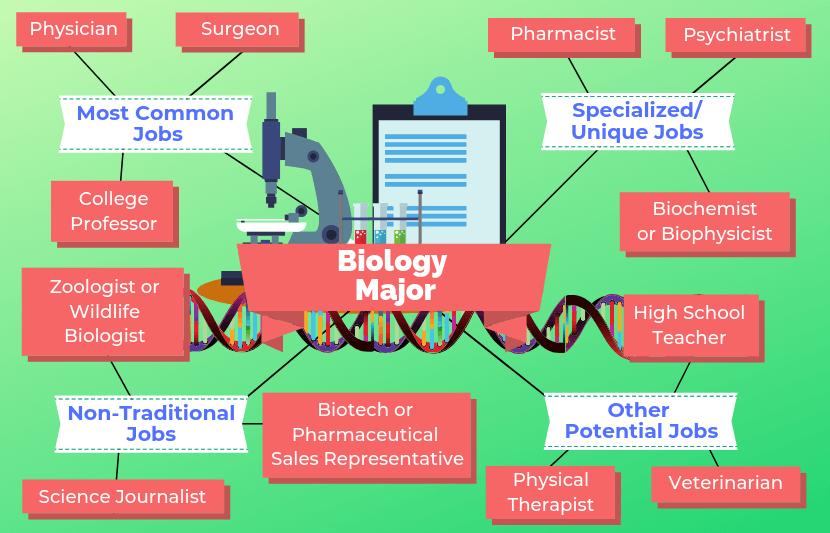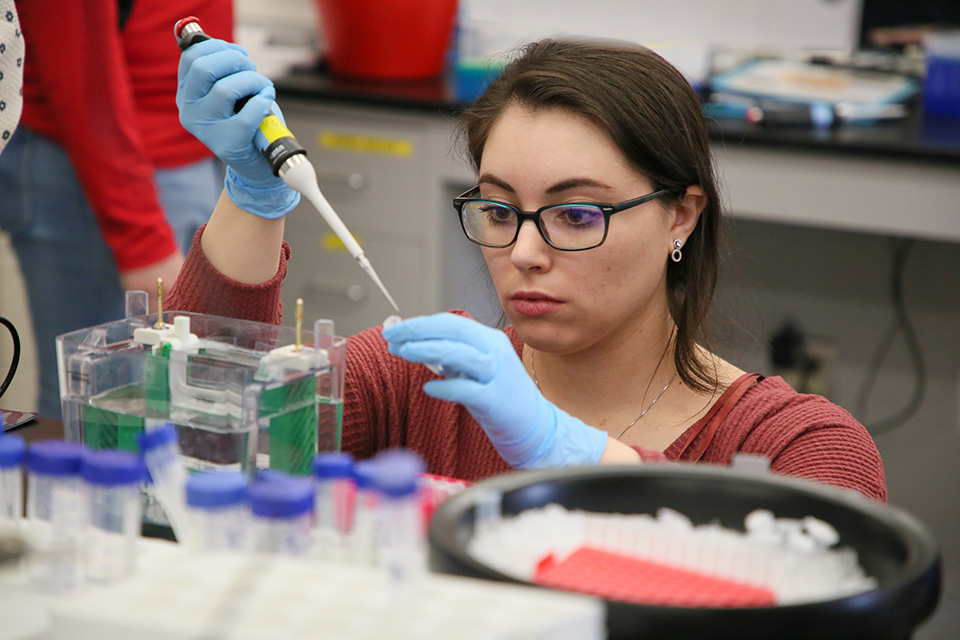Charting A Course In Life Sciences: A Comprehensive Guide To The University Of South Carolina Biology Major
Charting a Course in Life Sciences: A Comprehensive Guide to the University of South Carolina Biology Major
Related Articles: Charting a Course in Life Sciences: A Comprehensive Guide to the University of South Carolina Biology Major
Introduction
In this auspicious occasion, we are delighted to delve into the intriguing topic related to Charting a Course in Life Sciences: A Comprehensive Guide to the University of South Carolina Biology Major. Let’s weave interesting information and offer fresh perspectives to the readers.
Table of Content
Charting a Course in Life Sciences: A Comprehensive Guide to the University of South Carolina Biology Major

The University of South Carolina (UofSC) offers a robust Biology major, providing students with a comprehensive foundation in the diverse and dynamic field of life sciences. This program equips students with the knowledge and skills necessary to pursue a wide range of careers in research, education, healthcare, and environmental management.
Understanding the UofSC Biology Major Map
The UofSC Biology major map serves as a detailed roadmap, guiding students through the required coursework and elective options necessary to earn a Bachelor of Science (B.S.) degree. It outlines a structured curriculum encompassing foundational biology principles, advanced specialization areas, and essential skills development.
Core Curriculum: Building a Solid Foundation
The core curriculum of the UofSC Biology major lays the groundwork for a deep understanding of biological concepts. This foundational knowledge is essential for further exploration and specialization within the field. Key courses include:
- General Biology: This introductory course provides a comprehensive overview of fundamental biological principles, encompassing cell structure, genetics, evolution, and ecology.
- Organic Chemistry: This course delves into the structure, properties, and reactions of organic compounds, essential for understanding the chemical basis of life.
- Biochemistry: This course explores the chemical processes that occur within living organisms, focusing on the structure and function of biomolecules.
- Genetics: This course examines the principles of heredity and the mechanisms of gene expression, providing a foundation for understanding genetic diversity and evolution.
- Cell Biology: This course investigates the structure and function of cells, the fundamental units of life, and explores the complex processes that occur within them.
Specialization Tracks: Tailoring Your Path
Beyond the core curriculum, the UofSC Biology major offers a variety of specialization tracks, allowing students to tailor their education to their specific interests and career goals. These tracks provide in-depth knowledge and skills in specific areas of biology, preparing students for advanced studies or professional careers. Some of the available tracks include:
- Ecology and Evolution: This track focuses on the interactions between organisms and their environments, exploring evolutionary processes, biodiversity, and conservation.
- Molecular and Cellular Biology: This track delves into the intricate workings of cells and molecules, investigating gene regulation, protein synthesis, and cellular signaling.
- Biotechnology: This track explores the application of biological principles to create new technologies and products, focusing on areas like genetic engineering, bioinformatics, and drug development.
- Pre-Medical: This track prepares students for a career in medicine, providing the necessary coursework and experiences to apply to medical schools.
Developing Essential Skills: Beyond the Textbook
The UofSC Biology major emphasizes the development of essential skills that are highly valued in various professional fields. These skills include:
- Critical thinking and problem-solving: Students learn to analyze data, interpret scientific literature, and develop solutions to complex biological problems.
- Communication and presentation: Through research projects, seminars, and presentations, students hone their ability to communicate scientific information effectively to diverse audiences.
- Research and experimentation: The major incorporates hands-on laboratory experiences, teaching students the principles of experimental design, data analysis, and scientific writing.
- Collaboration and teamwork: Students work in groups on projects, developing interpersonal skills and learning to collaborate effectively with others.
Benefits of a UofSC Biology Major
Choosing a Biology major at UofSC offers numerous benefits, setting students on a path to fulfilling and impactful careers:
- Strong academic foundation: The rigorous curriculum provides a deep understanding of biological principles, preparing students for advanced studies or entry-level positions.
- Career flexibility: The diverse specialization tracks and skills development opportunities open doors to a wide range of careers in research, healthcare, education, and environmental management.
- Research opportunities: The university’s strong research infrastructure and faculty expertise provide students with opportunities to participate in cutting-edge research projects.
- Network and mentorship: Students benefit from access to a supportive faculty, experienced researchers, and a network of alumni working in various fields.
- Global impact: Biology majors are equipped to address critical global challenges such as climate change, disease outbreaks, and food security.
FAQs about the UofSC Biology Major Map
Q: What is the minimum GPA requirement for the Biology major?
A: The minimum GPA requirement for the Biology major is 2.0. However, maintaining a higher GPA is recommended for competitive graduate school applications or certain career paths.
Q: How many credit hours are required for the Biology major?
A: The Biology major requires a total of 120 credit hours, including core courses, specialization track electives, and general education requirements.
Q: Can I double major with Biology?
A: Yes, double majoring with Biology is possible. However, it is important to consult with an academic advisor to ensure that the chosen second major aligns with the Biology major requirements and timeline.
Q: Are there any internship or research opportunities available for Biology majors?
A: The UofSC Biology Department offers numerous opportunities for internships and research experiences, both on and off campus. Students are encouraged to connect with faculty members and explore research opportunities in their areas of interest.
Q: What are the career options for Biology majors?
A: Biology majors can pursue a variety of career paths, including:
- Research Scientist: Conduct research in academic institutions, government agencies, or private companies.
- Biotechnologist: Develop new technologies and products using biological principles.
- Healthcare Professional: Work as a physician, nurse, or other healthcare provider.
- Environmental Scientist: Analyze environmental data, conduct research, and develop solutions to environmental problems.
- Educator: Teach biology at various levels, from high school to university.
- Science Writer: Communicate scientific information to the public through various media outlets.
Tips for Success in the UofSC Biology Major
- Stay organized and manage your time effectively: The Biology major is demanding, requiring careful time management and organization to balance coursework, research, and extracurricular activities.
- Seek out academic support resources: The university offers a variety of academic support services, including tutoring, writing centers, and career counseling.
- Develop strong study habits: Effective study techniques are essential for success in the challenging Biology courses.
- Engage in research opportunities: Participating in research projects provides valuable hands-on experience and strengthens your understanding of scientific principles.
- Network with faculty and peers: Building relationships with faculty members and fellow students can open doors to research opportunities, mentorship, and career advice.
- Stay updated on advancements in the field: Biology is a rapidly evolving field. Staying informed about new discoveries and research trends is crucial for professional development.
Conclusion
The UofSC Biology major provides a comprehensive and rigorous educational experience, equipping students with the knowledge, skills, and opportunities to thrive in a wide range of career fields. By embracing the challenges and opportunities presented by this program, students can embark on a fulfilling and impactful journey in the fascinating world of life sciences.








Closure
Thus, we hope this article has provided valuable insights into Charting a Course in Life Sciences: A Comprehensive Guide to the University of South Carolina Biology Major. We appreciate your attention to our article. See you in our next article!
You may also like
Recent Posts
- Navigating The Landscape: A Comprehensive Guide To South Dakota Plat Maps
- Navigating The Tapestry Of Malaysia: A Geographical Exploration
- Navigating The World Of Digital Maps: A Comprehensive Guide To Purchasing Maps Online
- Unlocking The Secrets Of Malvern, Arkansas: A Comprehensive Guide To The City’s Map
- Uncovering The Treasures Of Southern Nevada: A Comprehensive Guide To The Caliente Map
- Unraveling The Topography Of Mexico: A Comprehensive Look At The Relief Map
- Navigating The Heart Of History: A Comprehensive Guide To The Athens City Map
- Navigating The Beauty Of Greece: A Guide To Printable Maps
Leave a Reply